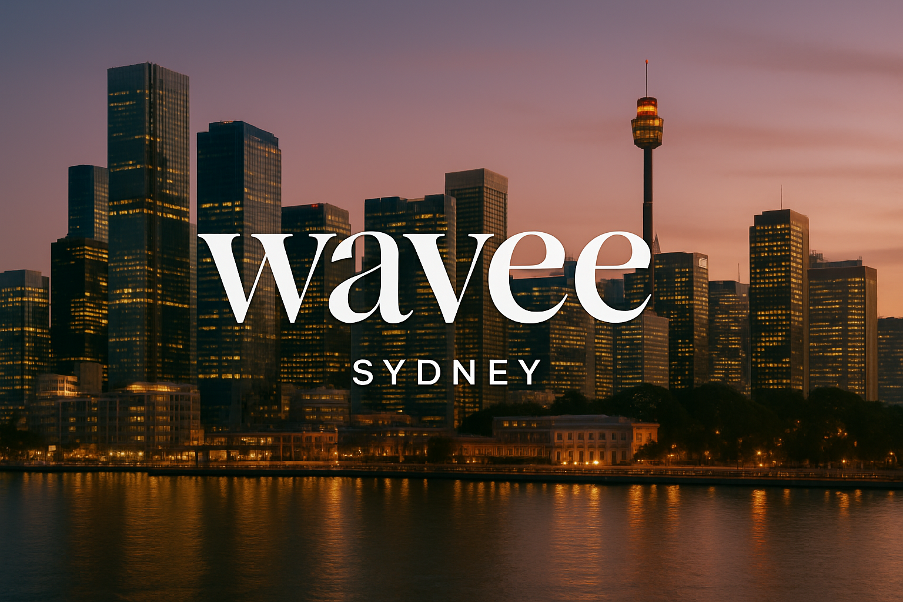Wavee Ai Wants to Tidy Up the Neighbourhood Chat
BRANDVOICE – SPECIAL FEATURE

Anyone who has joined a building group chat knows the chaos. One neighbour complains about rubbish collection, another dives into a debate about recycling, and someone else slips in a suspicious link that feels more like spam than community news. What begins as a way to connect often ends up as noise.
Into this confusion steps Wavee Ai, a London-based resident app founded by Nikesh Panchal, promising to cut through the chatter and give city dwellers something that feels almost radical: order.
Wavee Ai’s premise is straightforward. Residents use the app to track parcels, receive visitor notifications, and connect with neighbours, while concierge staff replace paper logs with a digital portal to manage deliveries, visitor access, and announcements. Local businesses can subscribe through a portal that gives them direct access to households living just a few steps away.
The distinction lies in how Wavee Ai uses verification. Like many property management systems, residents are authenticated through their building. But instead of stopping there, Wavee Ai turns that routine step into the foundation of a wider network. Verification makes the app a trusted space for genuine neighbour-to-neighbour interaction and it gives businesses the confidence that every promotion, booking, or live chat reaches a real local resident.
The decision to make the app free for residents and buildings is equally deliberate. Nobody wants another line item added to service charges. By funding the platform through business subscriptions and advertising, Wavee Ai avoids the resistance that often greets new software. The model also makes sense for shops, gyms, and cleaners: instead of paying for broad, expensive marketing, they can invest modestly to reach verified households nearby.
Building Intimate Connections
Sceptics might argue that residents are tired of downloading new apps, and that is fair. Every phone is already cluttered with platforms promising to improve life. Panchal’s gamble is that Wavee Ai offers something fundamentally different. It is a community management platform that is not trying to connect the world. It is trying to connect the floor above with the floor below. In a digital economy obsessed with scale, that is a surprisingly intimate bet.
The cultural undertones matter as well. Social media has thrived on noise, anonymity, and mass reach. What Wavee Ai offers is almost quiet by comparison: a closed space where people can manage their building lives without interference. On Wavee Ai, every interaction, whether with a neighbour or a local business, comes from a verified resident. That certainty can improve efficiency, build trust, and reassure residents and businesses that the person on the other end is genuine.
The Startup Success
Wavee Ai has already achieved some traction. The company has completed its initial rollout in London, secured early-stage investment, and attracted a growing base of businesses interested in joining the platform. Expansion plans are advancing in Manchester, Birmingham, and Edinburgh, with Singapore identified as an international entry point.
But the biggest spotlight is now on Australia, where Panchal and his team are preparing to target Sydney, Melbourne, and Brisbane, the east coast cities where high-density living and concierge-led developments are expanding rapidly. Talks are also underway about setting up a local office to support growth in the region, underscoring Wavee Ai’s intent to make Australia a core international market. The ambition is not modest: to build the world’s first true neighbourhood community app.
The New Start on Community Management
Despite its great start, Panchal acknowledges that Waivee Ai still has obstacles to face. Onboarding requires buy-in from property managers and concierges, who may hesitate to change routines. Balancing commerce with authentic conversation will be another test. If ads overwhelm the community, residents could switch off. If the verification process slows down, buildings may resist adoption.
But Panchal takes on the challenge as he keeps on refining the balance between utility and community as the platform grows.
Still, there’s something refreshing about Wavee Ai—not promising to change the world, but to fix a smaller, more immediate corner of it. Wavee Ai is not telling residents they need to join a revolution. It is telling them they can finally have a building community that is trustworthy, useful, and spam-free. And in the current state of digital life, that might be the boldest promise of all, starting with Sydney, Melbourne, and Brisbane communities.